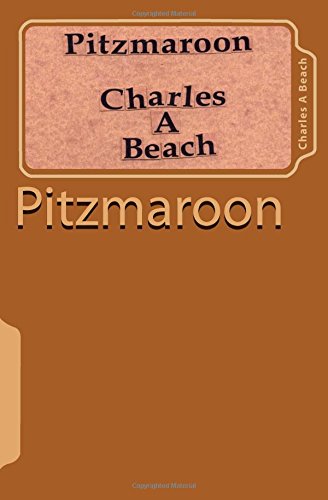Pitzmaroon: or, The Magic Hammer
Charles A. Beach, Jim Gravelyn
eBook
(Travelyn Publishing, Feb. 6, 2019)
It can be hair-raising reading children’s books from the 19th century here in the 21st century. Sensibilities have changed. Charles A. Beach’s children’s book, originally published in 1874, is full of adventure, making it undeniably fun to read—your kids and grandkids will surely get a kick out of it—but the story is also full of blood, cannibalism, cheating, overcharging, beheading, and general violence. And if all that isn’t enough to give you doubts, he throws in some racism, some anti-Semitism, and even some polygamy—two beautiful wives is one of Pitzmaroon’s rewards at the end of the story... suggesting, to married men everywhere, that Mr. Beach was a lifelong bachelor. But in spite of the various and sundry flaws of political-incorrectness and bigotry, the 21st-century reader eventually has to admit: this book from a century and a half ago, with its blood, gore, violence, and etc., is a helluva lot more fun to read than most of the ingratiatingly saccharine sap we produce in our own, so-called more civilized era. Parents and grandparents are going to watch the yawns and inattention disappear from their listeners’ little faces, and watch those same faces light up as the little munchkins start listening and even laughing out loud when they start hearing Pitzmaroon being read to them. Here’s the thing: anybody with children or grandchildren who seem extra difficult to engage in the process of learning to read, maybe something like “Pitzmaroon”—with its magician who periodically vomits gallons of blood, its 27 humorously grotesque illustrations, and its virtuous hero who is often not very virtuous at all—is just the thing to engage them. Preparing old books for digital publication is a labor of love at Travelyn Publishing. We hold our digital versions of public domain books up against any others with no fear of the comparison. Our conversion work is meticulous, utilizing a process designed to eliminate errors, maximize reader enjoyment, and recreate as much as possible the atmosphere of the original book even as we are adding the navigation and formatting necessary for a good digital book. While remaining faithful to a writer’s original words, and the spellings and usages of his era, we are not above correcting obvious mistakes. If the printer became distracted after placing an ‘a’ at the end of a line and then placed another ‘a’ at the beginning of the next line (they used to do this stuff by hand you know!), what sort of mindless robots would allow that careless error to be preserved for all eternity in the digital version, too? Not us. That’s why we have the audacity to claim that our re-publications are often better than the originals.



